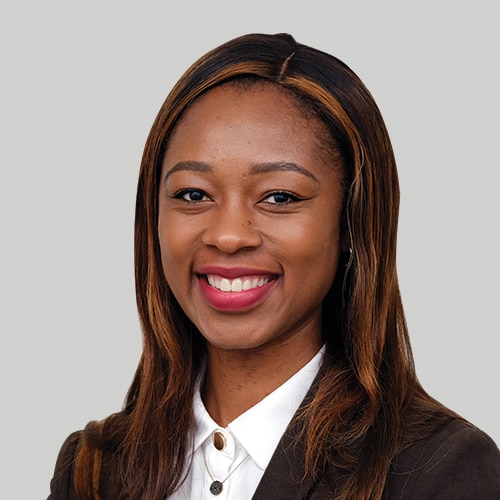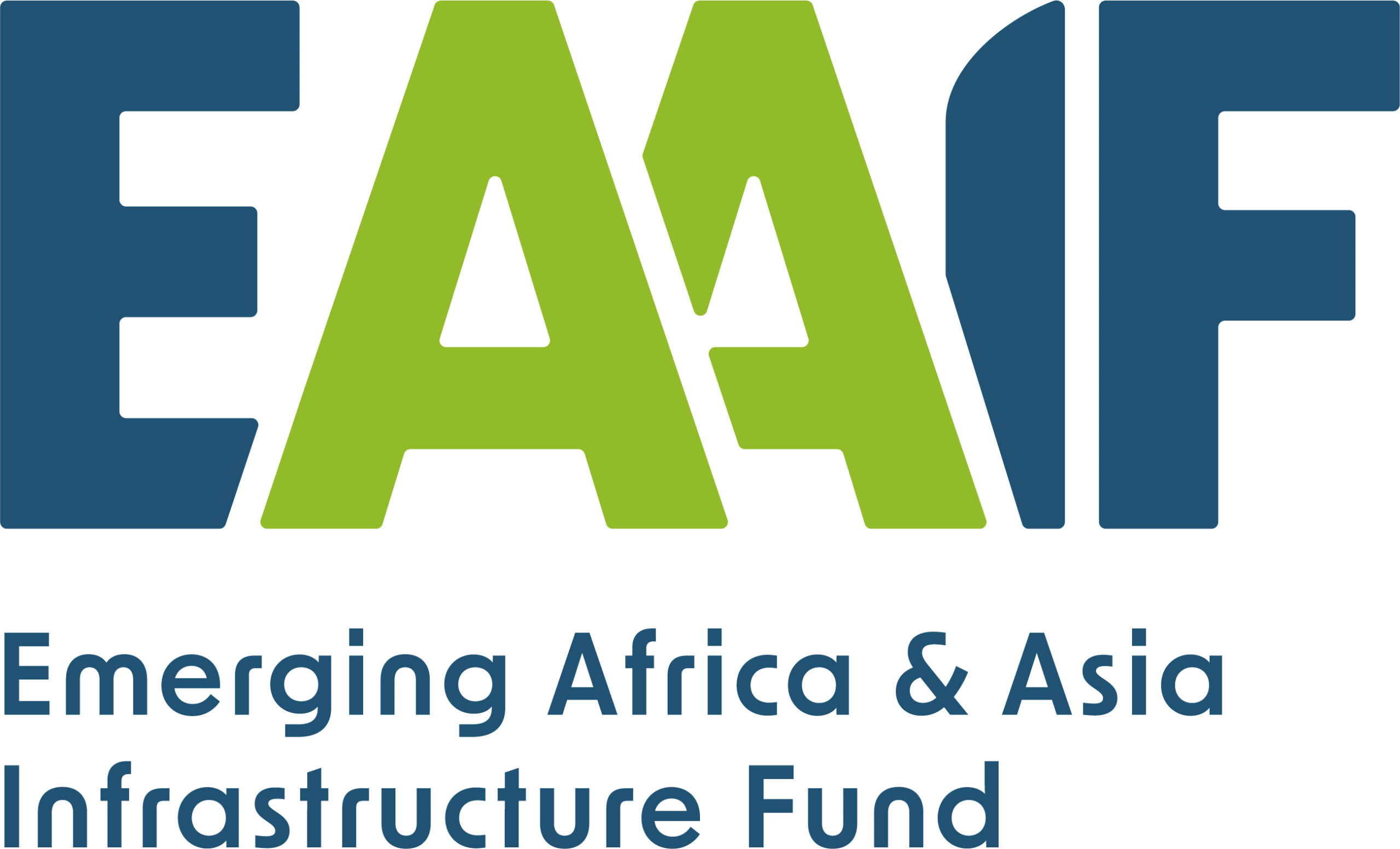Sinenhlanhla Zulu talks about her work at EAIF

Sinenhlanhla Zulu is a core part of the Emerging Africa Infrastructure Fund (EAIF) team working on multi-million dollar infrastructure transactions. Martin Roche interviewed her about her work and the impact of EAIF-backed projects.
Sinenhlanhla Zulu is an Investment Specialist at Investec Asset Management*, EAIF’s managers, and one of 13 women in a team of 26. She is based in Cape Town. Sine holds an MBA from the UK’s University of Cambridge, a BSc in Mining Engineering from the University of the Witwatersrand in South Africa and has passed level I of the Chartered Financial Analyst qualification (CFA).
Infrastructure and corporate finance are traditionally male-dominated businesses. What attracted you to work with the EAIF team at Investec?
For me, what is most important is that EAIF finances impactful infrastructure projects vital to the development of our continent, often in countries that other financial institution would view as “too risky”. Secondly, the set-up of EAIF (a development fund managed by a commercial institution) is truly unique and allows for a blended culture – keeping development impact top of mind whilst staying nimble and commercial. That infrastructure and corporate finance are male-dominated didn’t deter me at all because I am convinced that the purpose of my career is to work in international development.
Can you describe the role of Investment Specialist?
My role involves all aspects of the investing process – from sourcing projects that need funding, and screening and analysis of funding opportunities and companies, to implementing and closing a transaction. But it doesn’t end there – as investment specialists, we are also involved in post-close activities, such as ongoing monitoring of our investments and restructuring in distress scenarios.
Do you feel EAIF is on a mission of such importance that makes it different from mainstream corporate finance organisations?
Absolutely! There are very few (if any) organisations structured like EAIF. As part of PIDG it also has the benefit of being able to access a range of other financial products that can help projects from embryonic stage to final construction. Developmental Impact is a huge part of our soul – it’s who we are, but at the same time we are nimble and pragmatic like a commercial bank. We are able to offer longer tenure loans at affordable rates, even in the most sensitive regions where mainstream corporates wouldn’t provide finance, and if they did, it would be at high interest rates. The EAIF mission is very important to the economies and people of our continent.
What recent notable projects have you worked on?
At EAIF, we provided funding for Kenmare Moma towards the end of 2019 – a mineral sands operation in Mozambique. The journey that EAIF has walked with Kenmare since 2004 is incredible: because this company has survived and thrived through different economic cycles and also because of the developmental impact that this project has had in the surrounding community.
You have an engineering degree. How often do you use your engineering knowledge?
My engineering background is really useful when thinking about my transactions from a problem-solving perspective. I use it most often when looking at technically intense infrastructure projects (such as renewable energy projects) during the due diligence phase, to understand the different technologies.
EAIF lends between US$10 million and US$65 million to qualifying infrastructure projects. How are you involved in the process that recommends a loan?
I am involved from the beginning, at the screening phase when the go/no-go decision needs to be made. I get intricately involved in the risk analysis and in examining each case from the point of view of credit profile and political, social, technical, environmental, and legal aspects and risks. Once satisfied that all project related risks are adequately mitigated and that the loan fits well with our mandate and purpose as EAIF, I recommend the loan internally.
You have to present your recommendations for a loan to a committee. Do you enjoy the intellectual challenge of arguing a strong case?
I find the challenge exhilarating! I ensure that I personally am convinced of the merits of a loan before presenting it to any committee. There is a multi-step approval process in place, to make various stakeholders comfortable with the risks of the project. Once we have initial support to proceed, I present my recommendations and thoughts to two committees and a robust conversation usually follows. Credit approvals always give me a sense of achievement!
Is it part of your work to look for innovative ways of financing a project? Why is that sometimes needed?
Yes – I have to look for innovative ways of financing, particularly in tougher transactions or jurisdictions new to EAIF. Projects carry unique risks that are different to other projects, and where a certain feature of a project is new to EAIF (such as a new technology or elevated risks in environment, social and governance (ESG) aspects), we have to be innovative and come up with elegant solutions to manage this risk.
What gives you the greatest satisfaction when you visit a project you have helped finance?
Travel to site is a crucial part of our due diligence when financing projects. It’s incredibly heart-warming to witness the change in people’s lives that our funding provides. I travelled to Mozambique recently where I witnessed the social impact one of our projects. It’s very fulfilling to be part of such impactful transactions, where there is transformation in the community, especially in entrepreneurship, education and healthcare.
As an African woman, what do you see as the biggest barriers to women reaching the top of business and finance across the continent?
There have been a lot of private sector initiatives and government-led programmes to transform the boardrooms of Africa and significant progress has been made in recruiting women into finance. However, there are fewer women as you climb the corporate ladder, and the gender gap is just so glaring! I think the biggest barriers are cultural. “Old boy” networks are still very much a part of the recruitment process for strategic positions and these networks are not easy to crack for a woman. I believe that as more and more accomplished business leaders provide meaningful mentorship to young women and create an environment in which we can thrive, the more they will understand the benefits of diversity. Then the culture will begin to change.
What would be your message of hope to other women who aspire to follow in your path?
There is still a lot of work to be done towards achieving equality, but there are also some stellar examples of women who have overcome structural and cultural barriers to thrive in the finance industry. We can draw inspiration and encouragement from them. I really believe that this progress towards equality is an indication that in the not too distant future women will also occupy strategic positions in boardrooms, not just because we are women, but because we are capable and also deserve to be there.
* On 16 March, Investec Asset Management will separate from Investec Group and become a separate independent publicly quoted company. It will change its name to Ninety-One.
